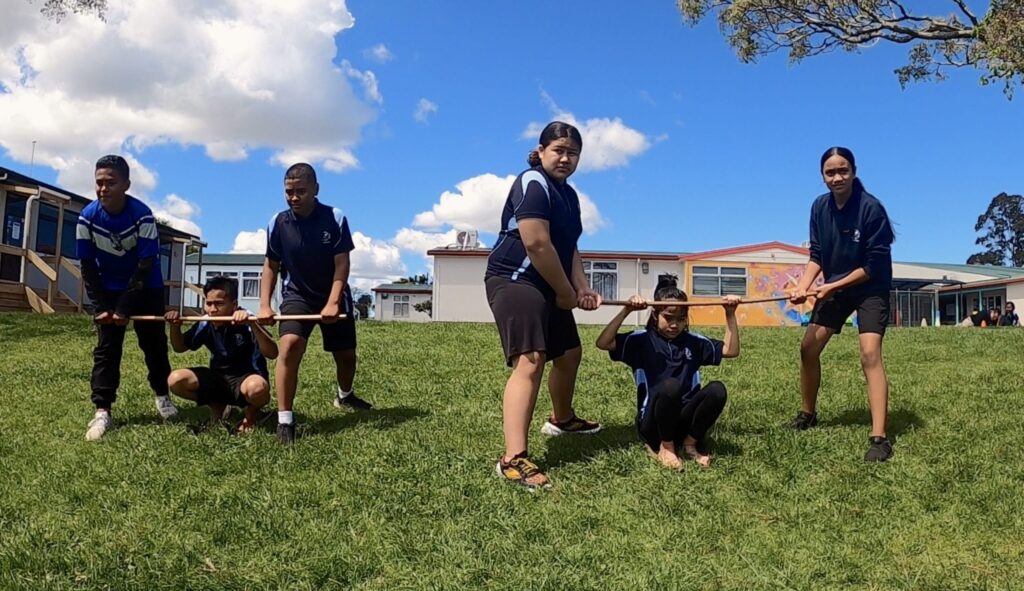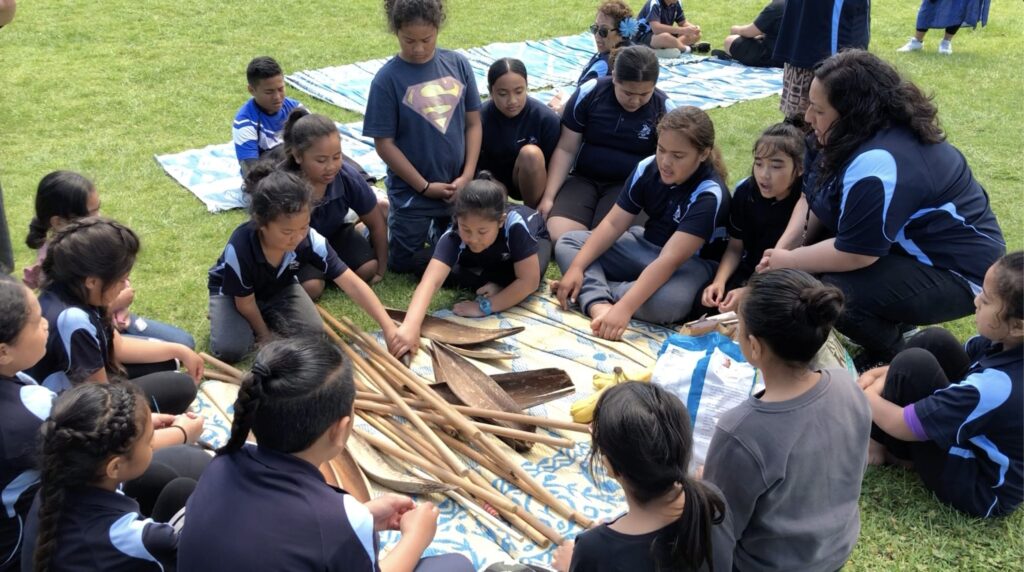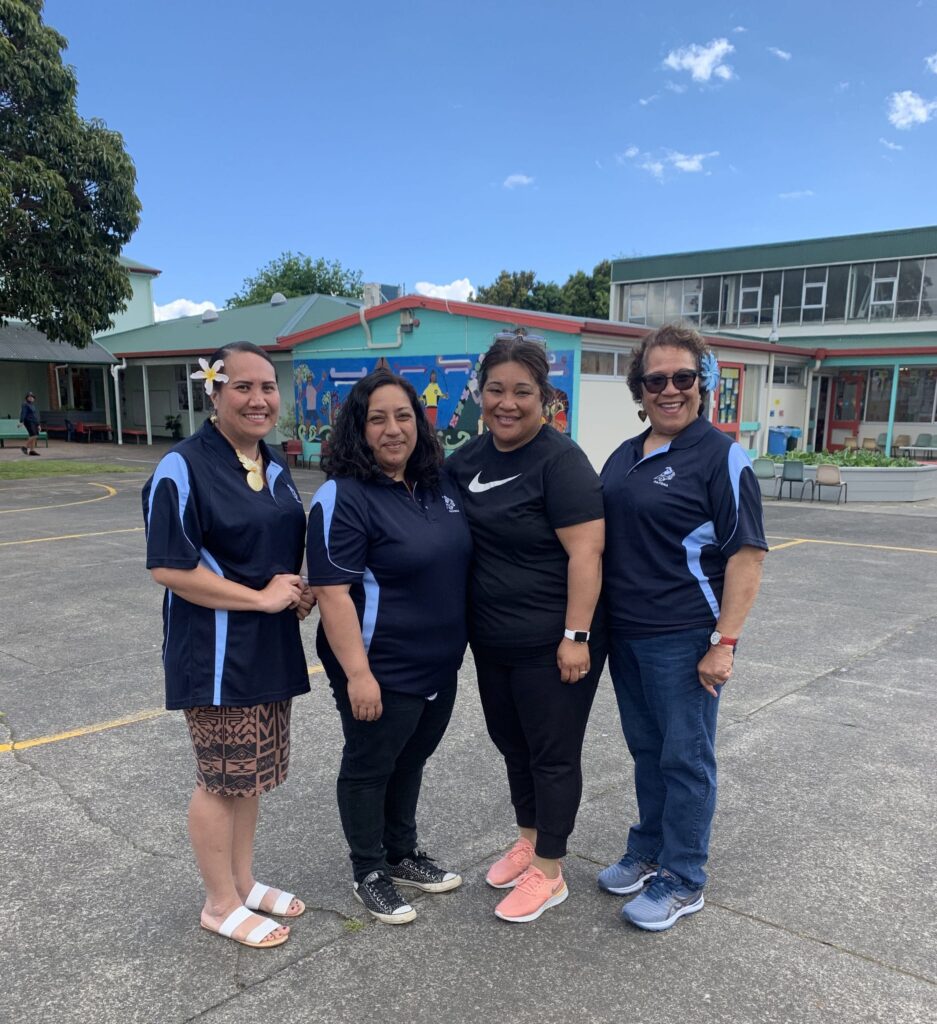
The Village Games movement continued during Niue Language Week (18 October to 24 October), with pupils from Favona Primary School playing traditional Niue games, watch the video here.
Favona Primary School, Vahega Vagahau Niue (Niue language class), were taught Toho Toume (land skiing using the outer layer of a coconut) and Sika, (where sticks are poked into a lime to resemble a javelin and thrown like one), by Mele Nemaia, a Favona Primary School Senior Teacher who is also Chairperson of the Vagahau Niue Trust in New Zealand.
Healthy Families South Auckland joined Mele and Vahega Vagahau Niue to learn and understand how Toho Toume and Sika can help South Aucklanders connect to their language, culture, and enjoy good health and wellbeing.
“Toho Toume is a game that’s enjoyed by males and females. The objective is to get to the finish line while holding on to the stick. Two runners pull the person who is skiing on a toume,” says Mele Nemaia, who is a Member of the New Zealand Order of Merit (MNZOM) for her services to promote the Niuean language in New Zealand.
“It’s the Niue version of skiing. We don’t have snow, so we ski on the ground, using the toume which is from a coconut tree. The joy of riding on the toume makes it a very popular game.”

For pupils of Favona Primary School, playing traditional Niue games was ‘fun’.
“It’s different from what we’re used to and it’s more exciting,” says James Leona.
Zaeliyah Aka-Keukeu, says, “It’s a lot more creative than other normal games we play at school. I had a lot of fun playing it.”
Mele, a community champion, believes that systems change is needed for traditional games like sika and toho toume to be integrated into school life but more importantly to ensure vagahau Niue (Niue language) survives in New Zealand.
“It’s our identity, it’s our culture. All those things fit into Niue games and how we use it as a vehicle to connect with our community,” she says.
“If we can get it resourced, people can enjoy our active and exciting games but also connect with our language and culture which makes for a more positive experience.”
Fila Fuamatu, Lead Systems Innovator, says the Village Games movement is connecting with community champions like Mele and her Favona Primary School teaching colleagues as they are the knowledge experts in Pacific and Māori communities.
“The Village Games movement seeks the guidance of our Pacific and Māori knowledge holders, who pass on the traditions and customs of culture to the next generation,” she says.
“Mele as well as her colleagues are well-respected in the Niue community. It’s our privilege and responsibility to ensure that we treasure and preserve their knowledge and stories so that others, particularly Niue people, can learn and get active by playing traditional games as taught by those who are passionate about Vagahau Niue.”
